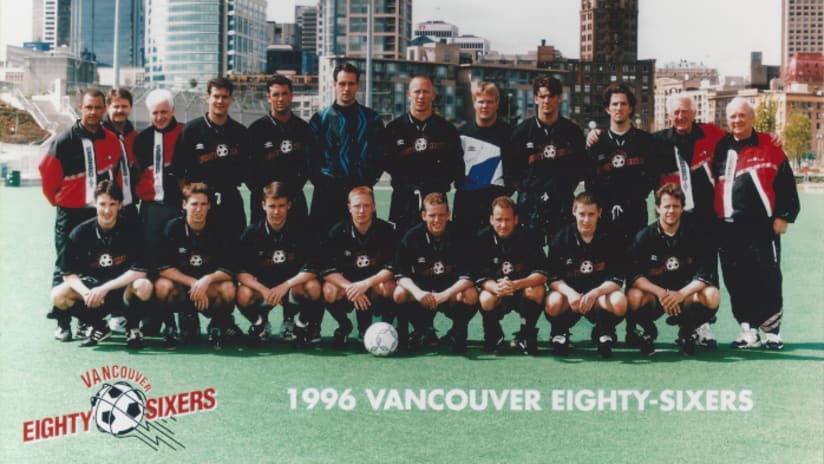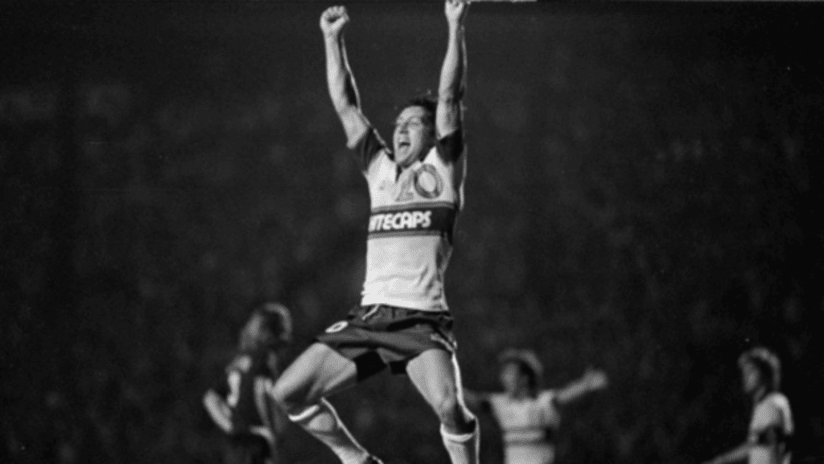Nick Dasovic, head coach of the Whitecaps FC Development Squad, spent nearly two full years earning his UEFA Pro License, the highest coaching license in world football. Many don’t know the work, dedication, and degree of education that goes into this course. In this blog, Daso will tell us about people he met along the way as he went through his program with the Scottish Football Association, and the lessons he learned from each person.
Today, Daso discusses Norway MNT manager Lars Lagerbäck.
PROFESSIONAL HIGHLIGHTS
- Current national team manager of Norway
- Former national team manager of Iceland, Nigeria, and Sweden
- Led Sweden to five consecutive International Championship appearances
INTRODUCTION
Lars Lagerback is best known for his time in Sweden, where he enjoyed successful stints as a club coach and as the manager of the Swedish national team. He began his international career as the coach of the Swedish youth team before moving on and taking the helm of the senior side in 1998. After resigning as the manager of Sweden in 2009, he spent time as the coach of the Nigerian and the Icelandic national sides. He co-managed Iceland's Cinderella run to the Euro 2016 quarterfinals. He is currently coach of the Norwegian national team.
PERSONALITY & SWEDEN
Lars Lagerback has seen a lot of changes in his 30 years in football, not the least being the astronomical rise in player salaries. The business of the modern game causes you to have to be aware of all the going ons of your team from the backroom staff to the coaching staff. Big money moves are prevalent and often take away the best players from the domestic league. At the same time, uncontrollable factors such as the climate and limited infrastructure play a partial role in keeping players and bringing players in.
TACTICS
As coach of the Nigerian national team, Lars had to alter his tactics to fit the Nigerian style of play. He knew that the Nigerians loved to have the ball no matter where on the pitch and that they took too many chances at the wrong time. He chose a traditional 4-4-2 set-up for the team that he sometimes altered by dropping a striker into the hole for more flexibility. Within this tactical formation, Lars attempted to combine individual skills with team performance.
In terms of defensive coverage, he opted for a zonal defensive shape while with Nigeria. In this system, the moment when you lose or win the ball is the most critical part of the game. It is therefore important that when you win the ball that the fullbacks join the attack, but if you lose the ball it is necessary that the four closest players organize themselves and make up the back four.
In the attacking phase, they were very conscious of retaining a balance in the team. They looked to go deep and look forward with the first pass to catch the opposition on a counter attack. Early on, Lars realized that the pace with which the ball moved was questionable and that they needed to practice the long ball pass with good pace.
CONTINUITY
Lars is a firm believer in allowing coaches time to work at a club for more than a few years to get an opportunity to get results. He believes that it is important that presidents and owners practice patience in allowing coaches time to do their work. He believes that coaches have to understand their situation and find solutions that fit their experience.
For example, he recommends that if you have a limited time with a squad you may be better off by not trying to change too much as you may get a negative reaction. His advice is to be ambitious but not too ambitious.
COMPETING
The most fascinating aspect of football to Lars is the fact that only in football can a third division team beat a first division team. The fact the Swedish team has never lost to the England national team since 1968 shows that there is a lot of parity in the international game as well. Lars believes that through proper preparation, it is possible to get a result against any team.
He used his own experience at the 2002 World Cup as an example of an underdog defeating the odds and progressing out of the group stage. To be successful as a coach you have to be realistic about the quality of players at your disposal as well as their capabilities.
COMMUNICATING WITH PLAYERS
After taking the reins of the Swedish national team, Lars attempted to open the lines of communication with the players to establish an understanding of how time with the national team will be organized. He also wanted to have an open discussion about what should be the philosophy of the team orientation. Lars believes, if you allow the players to take part in the conversation it gives them a sense of responsibility and engages them. However, he warns that although you ask for the players input, it is not a democracy. In the end, you as a coach must always make the final decision.
This blog was edited for brevity by Maxim Fossey.




